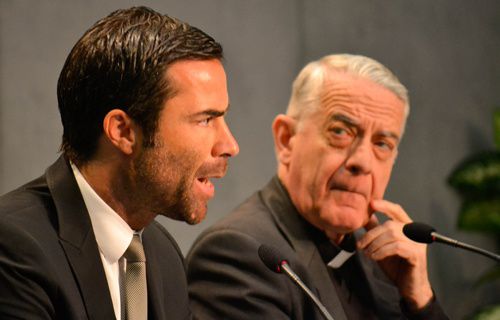The Vatican's financial watchdog signed a memorandum of understanding with its Argentine counterpart Tuesday, extending and bolstering its anti-money laundering reforms. For the first time, the signing of such a memorandum took place within the Vatican. It was signed by the director of the Holy See's Financial Information Authority, Rene Bruelhart, and the president of Argentina's Unidad de Informacion Financera, Jose Sbattella, in Palazzo San Carlo, the AIF's headquarters. “We are very pleased to have signed this memorandum of understanding with Argentina today,” Bruelhart stated June 24. “This is an important step to further expand the network to support global efforts to fight money laundering and the financing of terrorism.” “We are looking forward to fruitful cooperation with Argentina, which will be beneficial to both parties.” In the past two years, the AIF has signed such bilateral agreements with its counterparts in more than 30 countries. During the Egmont Group global meeting, held June 1-6 in Lima, it made agreements with the U.K., France, Malta, Peru, Poland, and Romania. The Egmont Group gathers international financial information departments from across the world; the AIF joined the group last July. Among the other prominent nations with which the AIF has signed agreements are the U.S., Germany, and Italy. The memorandum of understanding signed with Argentina, according to a statement from the AIF, “is standard practice and formalizes the cooperation and exchange of financial information to fight money laundering and combat terrorist financing across borders between the competent authorities of both countries.” “It is based on the model memorandum of understanding prepared by the Egmont Group … and contains clauses on reciprocity, permitted uses of information and confidentiality.” The Holy See's commitment to financial transparency has been demonstrated by the AIF's continuing reform, begun after the 2012 Moneyval assessment, and following from the positive progress report it issued in December, 2013. It has rebuilt institutional and juridical structures for finances, bringing its policies in line with international anti-money laundering standards. The AIF's ability to open and to strengthen cooperation with its foreign counterparts was enhanced with two reforms, undertaken in 2012 and 2013. It's policies seem to show that the Holy See's agenda for combatting money laundering is based on the twin pillars of a strong internal structure and an enhanced international cooperation.

